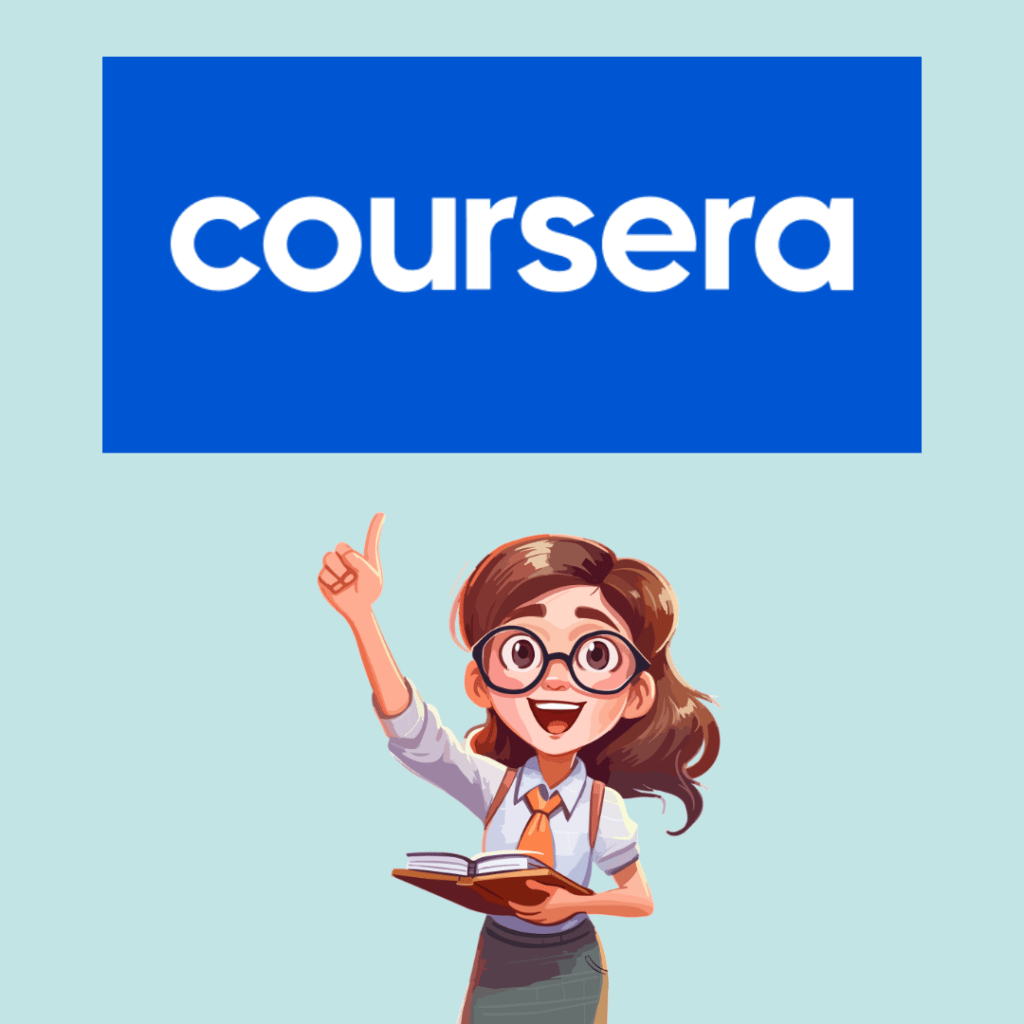In today’s digital age, the demand for accessible, high-quality education has never been higher. Coursera, one of the leading online learning platforms, has carved out a significant niche by partnering with top universities and industry giants to offer courses across a broad spectrum of subjects. But with so many options out there, is Coursera the right choice for you? This review will break down everything you need to know, from the pros and cons to real-world examples, to help you decide whether a Coursera subscription aligns with your business ideas, goals, and experience level.
What Exactly is Coursera?
Coursera is an online learning platform that provides access to thousands of courses, specializations, and even degree programs from some of the most respected universities and companies globally, including Yale, Stanford, Google, and IBM. Whether you’re looking to pick up a new skill, change careers, or gain a credential that will enhance your resume, Coursera offers a wide array of options tailored to different levels of experience.
Pros of Coursera
1. High-Quality Content from Leading Institutions
- Top-Tier Education: Coursera’s content is developed by professors from leading universities and industry experts. This ensures that you’re learning from the best in the field.
- Industry-Relevant Courses: Many courses are designed in collaboration with companies like Google, IBM, and Intel, which ensures the skills you learn are relevant to the current job market.
2. Flexibility and Convenience
- Self-Paced Learning: Coursera offers the ability to learn at your own pace, making it ideal for those with busy schedules. You can start a course when it’s convenient for you and complete it on your own time.
- Global Access: With Coursera, you can learn from anywhere in the world, as long as you have an internet connection. This makes it incredibly convenient for people who travel frequently or live in remote areas.
3. Accredited and Recognized Certifications
- Career Advancement: Coursera certificates are recognized by many employers, making them a valuable addition to your resume. In fields like data science, business, and IT, a Coursera certification can set you apart from other candidates.
- Pathways to Degrees: Beyond individual courses, Coursera offers online degrees in partnership with universities. These degrees are often more affordable and flexible than traditional on-campus options.
4. Diverse Range of Courses
- Wide Subject Range: From computer science to arts and humanities, Coursera covers a vast array of subjects. Whether you’re a beginner looking to learn the basics or an expert seeking advanced knowledge, there’s likely a course that suits your needs.
- Specializations and Professional Certificates: Coursera offers structured learning paths through specializations and professional certificates that dive deep into a particular subject, offering a comprehensive learning experience.
5. Affordable Learning Options
- Varied Pricing Plans: Coursera’s pricing is flexible, offering everything from free courses to paid certificates and degrees. The Coursera Plus subscription provides access to a vast majority of the platform’s content for a single annual fee.
- Financial Aid: For those who need it, Coursera offers financial aid options, making education accessible to a wider audience.
Cons of Coursera
1. Cost Considerations
- Subscription Costs: While many courses can be audited for free, obtaining a certificate or taking part in a specialization usually requires payment. The costs can add up, particularly if you’re interested in multiple courses or specializations.
- Financial Aid Limitations: Not all courses offer financial aid, and the process to apply for it can be cumbersome.
2. Content Saturation
- Overwhelming Choices: With thousands of courses available, it can be difficult to choose the right one. The sheer volume of options may overwhelm beginners or those who are unclear about their learning objectives.
- Inconsistent Quality: While many courses are of high quality, the quality can vary, especially with courses not directly overseen by top-tier institutions.
3. Limited Interaction and Feedback
- Automated Feedback: In many courses, feedback on assignments is automated, which can limit the depth of learning. This may not be sufficient for learners who prefer detailed, personalized feedback.
- Minimal Instructor Interaction: Coursera is largely self-directed, and interaction with instructors is often limited. Most of the learning experience relies on peer discussions and forums, which might not suit everyone.
4. Self-Discipline Required
- Time Management: Coursera’s self-paced nature means that you need to be disciplined and motivated to complete courses. Without a structured environment, it’s easy to fall behind or lose focus.
- Completion Rates: Like many online platforms, Coursera has relatively low completion rates, often due to the challenges of self-directed learning.
5. Limited Applicability of Certificates
- Varying Recognition: While Coursera certificates are recognized by many employers, they don’t carry the same weight as traditional degrees in some industries or regions. It’s important to research whether a Coursera certificate will be valued in your particular field.
Who Should Consider a Coursera Subscription?
1. Entrepreneurs and Small Business Owners
- Skill Development: If you’re looking to acquire new business skills, such as digital marketing, finance, or project management, Coursera offers numerous courses tailored to entrepreneurs. These can help you grow your business without the need for traditional business education.
- Flexible Learning: The ability to learn at your own pace is invaluable if you’re running a business and don’t have the time for a rigid class schedule.
2. Career Changers
- New Skill Acquisition: Coursera is ideal for those looking to switch careers. Courses in emerging fields like data science, AI, and IT can help you gain the skills needed to transition into a new industry.
- Industry-Recognized Certifications: Partnered certifications, especially those from tech giants like Google, can enhance your job prospects in a new field.
3. Working Professionals
- Up-Skilling and Re-Skilling: If you’re already established in your career but need to stay updated with the latest trends and technologies, Coursera’s advanced courses can keep you competitive.
- Leadership Training: Coursera’s specializations in management and leadership can help professionals move into higher roles within their organizations.
4. Beginners and Students
- Foundational Learning: For those just starting out, Coursera offers a variety of beginner-friendly courses that introduce you to new fields. The structured paths allow you to build knowledge gradually.
- Supplementary Education: If you’re a student, Coursera can complement your formal education, offering deeper insights into subjects you’re passionate about.
FAQs: What You Need to Know About Coursera
1. Is Coursera Free?
- Answer: Many courses on Coursera can be audited for free, but if you want a certificate or access to graded assignments, you’ll need to pay.
2. How Much Does Coursera Cost?
- Answer: Costs vary depending on the course. Individual courses can range from $29 to $99, specializations and professional certificates usually cost $39 to $79 per month, and degrees can range into thousands of dollars. Coursera Plus is an annual subscription costing around $399, providing access to a large portion of the platform’s offerings.
3. Are Coursera Certificates Valuable?
- Answer: The value of a Coursera certificate depends on your career goals and industry. In many fields, Coursera certificates are well-recognized and can enhance your resume. However, they may not replace traditional degrees or certifications in certain industries.
4. Can I Get Financial Aid?
- Answer: Yes, Coursera offers financial aid for those who qualify, but not all courses offer this option. The application process requires you to demonstrate financial need.
5. How Long Does It Take to Complete a Course?
- Answer: Course durations vary widely. Some can be completed in a few hours, while others might take several months. Most courses are self-paced, so you can complete them at your convenience.
6. What If I Don’t Finish a Course?
- Answer: If you don’t finish a course, you won’t receive a certificate, but you can always return to the material later, provided the course is still available.
7. What Interaction Can I Expect with Instructors?
- Answer: Interaction with instructors is generally limited. Most courses rely on peer-reviewed assignments and discussion forums for interaction, which may not provide the level of engagement some learners prefer.
Suggestions: Making the Most of Your Coursera Experience
1. Start with Free Courses
- Before investing in a paid course or subscription, try out a few free courses to see if Coursera’s learning style works for you. This will give you a sense of the platform’s strengths and limitations.
2. Set Clear Learning Goals
- Clearly define what you want to achieve with Coursera, whether it’s gaining a new skill, earning a certification, or exploring a new field. This focus will help you choose the right courses and stay motivated.
3. Consider Coursera Plus
- If you plan to take multiple courses, Coursera Plus offers good value for money. It provides access to a large portion of Coursera’s catalog for a flat annual fee, making it a cost-effective option if you’re committed to continuous learning.
4. Engage with the Community
- Active participation in discussion forums can enhance your learning experience. Don’t hesitate to ask questions, share your thoughts, and connect with other learners.
5. Create a Study Schedule
- Given the self-paced nature of Coursera, it’s easy to procrastinate. Set a realistic study schedule and stick to it to ensure you complete your courses on time.
So, Is Coursera Right for You?
Coursera offers a flexible, affordable, and high-quality way to gain new skills and knowledge. Whether it’s the right platform for you depends on your personal and professional goals.
If you’re an entrepreneur looking to sharpen your business acumen, a professional aiming to stay relevant in a rapidly changing industry, or a student seeking to supplement your education, Coursera is a valuable resource. On the other hand, if you require a highly interactive learning environment or the prestige of traditional degrees, Coursera might not fully meet your expectations.
Consider your business ideas, goals, and experience level. If Coursera’s flexibility, quality, and affordability align with your needs, investing in a subscription could be a smart decision for your future growth.
By considering these factors, you can make an informed decision about whether Coursera is the right fit for your learning and career objectives.



